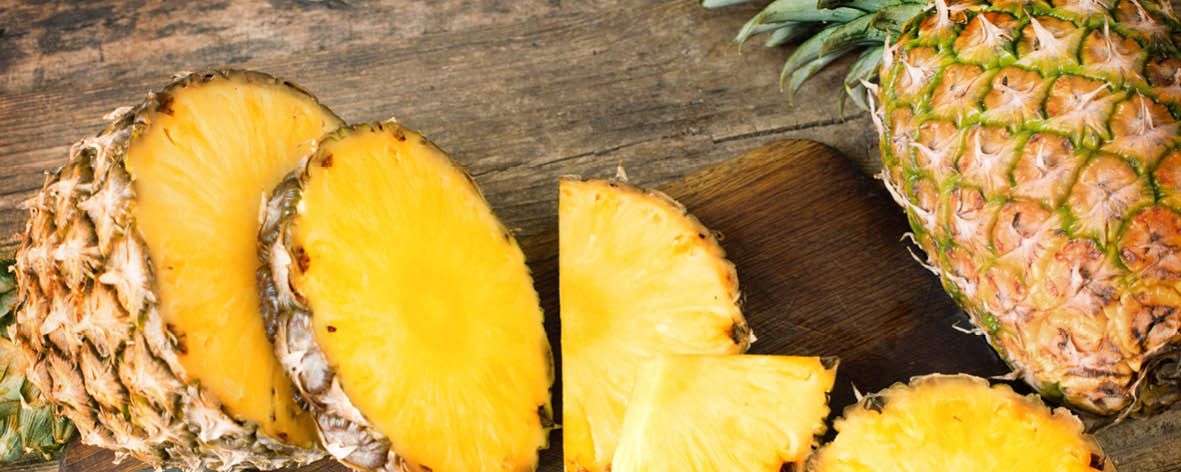All you need to know about … pineapple

The epitome of fresh and delicious tropical fruit, pineapples are hugely popular in Australia. Combined with their wonderful flavour they also have a range of health benefits that make them a great part of your diet.
Pineapples, though often associated with Hawaii, are not native to the Hawaiian islands. In fact, they originated in South America and were given the name “pineapple” due to their resemblance to a pine cone.
Pineapple plants are low-growing and have spiky leaves that are the same shape as the green parts on the top of the fruit. Plants take approximately two years to produce a single fruit.
Choose pineapples that feel heavy for their size as this usually indicates a juicy pineapple. Ripe pineapples have a sweet smell. If you are buying a whole pineapple with the leaves still attached you can test ripeness by gently pulling on one of the centre leaves. If it comes away the pineapple is ripe and ready to eat immediately.
Pineapples are best stored at room temperature until cut and then kept in an air-tight container in the fridge.
Learn how to cut pineapple in our “how to” guide here.
Nutritionally pineapples are low in kilojoules but contain plenty of nutrients vital for good health including vitamin C, manganese, vitamin B6, copper, thiamin, folate, potassium, magnesium, niacin, pantothenic acid, riboflavin and iron. Pineapples contain antioxidants especially flavonoids and phenolic acids, that may reduce the risk of heart disease, diabetes and certain cancers. They also contain bromelain, a digestive enzyme that breaks down protein aiding digestion and also has anti-inflammatory properties.

